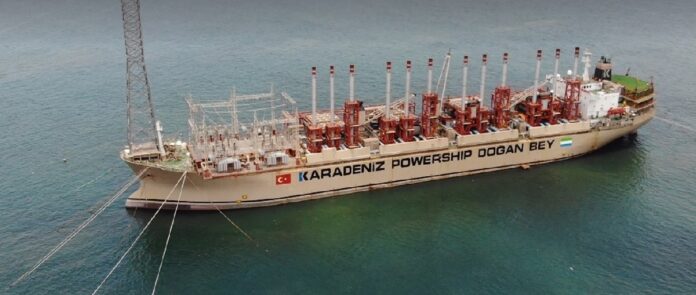By Lawrence Williams
The Turkish floating power supplier Karpowership last week announced a drastic reduction in electricity generation, from 50 megawatts to just 6 megawatts, citing more than two years of unpaid capacity fees and a six-month fuel payment default by the government of Sierra Leone.
The move, which critics say could effectively cripple the nation’s power supply, exposes a broader economic crisis at the heart of the Bio-led administration as well as raises serious concerns about the government’s capacity to uphold basic services, especially for critical infrastructure such as hospitals, schools, and water facilities.
Despite repeated warnings, high-level meetings, and a mutually agreed payment plan signed in January 2025 by the ministries of finance, energy, and the Electricity Distribution and Supply Authority, not a single installment has been honored, according to those familiar with the matter.
Karpowership, in its official statement dated June 10 revealed that it has been operating without fuel payments for six months and without capacity fees for more than two years.
“We have taken every step to avoid disruptions to service, but the prolonged delay in payments has reached a point where we can no longer meet our obligations to suppliers,” the company said, citing operational and financial sustainability risks.
Opposition critics say this latest development signals a brewing energy emergency and credibility crisis for the government. They say administration’s inability to meet basic financial commitments, despite signing a formal agreement, is a concern to them.
A senior Karpowership official told Fritong Post that the outstanding debt is $66 million.
“This is more than a power issue. It’s a governance failure,” said civil society activist Marcus Bangura. “If the government can’t keep the lights on, what else is being neglected?”
Nonetheless, the Karpowership management said they are open to sincere dialogue but can no longer rely on false promises.
“We were compelled to issue a suspension notice on 28 May 2025, requesting 30% of the outstanding amount is settled immediately,” the management said.
The company’s choice of words suggests that a full shutdown is inevitable if no payments are made.
Citizens fear that the blackout situation could lead to disruption in public services and commerce, with potential significant impact for the ailing economy.



